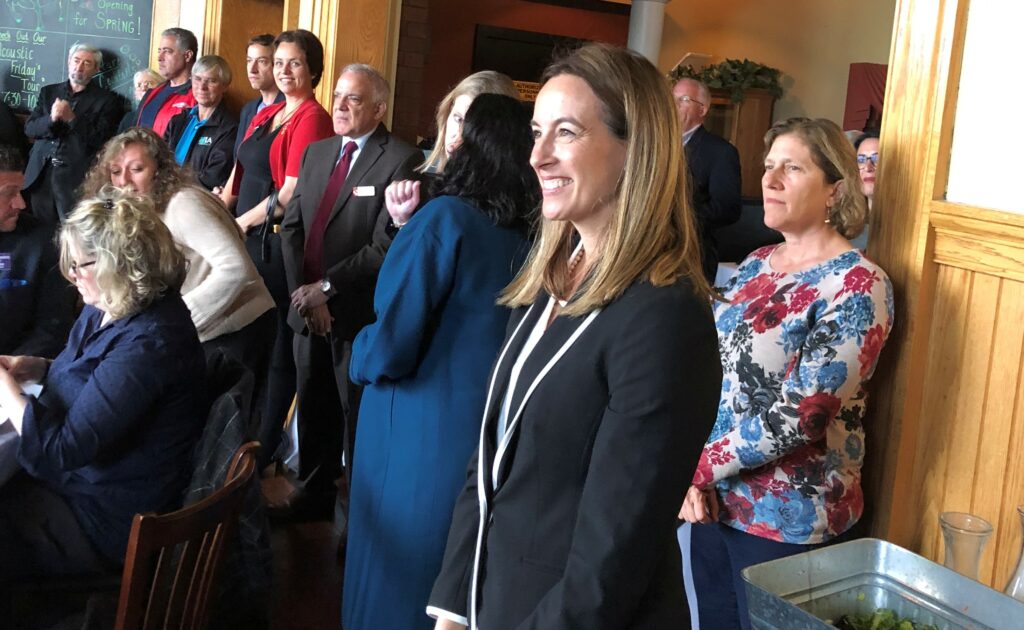Chairwoman Sherrill’s Opening Statement for New Jersey Field Hearing on Lead Contamination

Chairwoman Sherrill’s Opening Statement for New Jersey Field Hearing on Lead Contamination
(Washington, DC) – Today, the House Committee on Science, Space, and Technology’s Subcommittee on Investigations & Oversight is holding a hearing titled, “Addressing the Lead Crisis through Innovation & Technology.”
Chairwoman of the Subcommittee on Investigations and Oversight, Rep. Mikie Sherrill’s (D-NJ), opening statement for the record is below.
Good morning and welcome a hearing of the Investigations & Oversight Subcommittee. It’s a pleasure to be able to have this meeting right here in Bloomfield. I wish we could do every hearing in the district! We’re here to talk about an environmental issue that threatens millions of Americans, but sadly is hitting our state hard in 2019. A new analysis by New Jersey Future found that over five million New Jerseyans may be exposed to lead contamination from water. The Pequannock Water System– which serves half a million people across Bloomfield, Belleville and Pequannock Township and part of Nutley as well as the western part of Newark – has seen escalating lead levels as far back as 2017.
The UN General Assembly and the Human Rights Council recognized access to safe drinking water as a basic human right. When we see contamination that threatens human health, especially the health of our children, we need to deploy all available resources to address it.
But in April, the New Jersey Department of Environmental Protection reported that it could cost up to $2.3 billion dollars to replace all of the lead services lines in New Jersey. To put that in context, the entire budget for the New Jersey Department of Environmental Protection in 2018 was $214 million.
Its agonizing for everyone when we see a desperate need for improvement in a public good, but that need comes with an high price tag and a slow timeline. Addressing lead is a diffuse problem, where the exposure comes from millions of little pieces of hardware under our yards, in our basements and up to our taps.
First let me say that it is fantastic how countless state and local officials, the water utilities, and the Departments of Health and Environmental Protection have locked arms to confront this issue in recent months. County Executive DiVincenzo and Essex County have extended an incredible $120 million dollars in bond authority to support lead service line replacement in the greater Newark region. And just last week Governor Murphy rolled out a comprehensive Lead Action Plan that will beef up lead testing, public disclosures, and public funding for lead removal efforts.
But lead exposure in New Jersey is a kitchen sink problem. We need to throw everything we have at it.
We have two powerful tools in our toolkit: innovation, to find solutions that are faster, cheaper, and safer; and public education, so that families and businesses can better protect themselves. And in times like these, America’s small businesses and university researchers can really shine. In preparing for this hearing, we have run across dozens of brilliant new ideas for tackling lead in drinking water, from new methods for locating lead service lines where they exist, to strategies for getting lead service lines out of the ground at a lower cost and with less disruption. I want to make sure that the federal government is doing everything it can to get these smart ideas out of the lab and into the community.
I know that not every new invention will be available to help New Jersey with the crisis we’re facing today. But if our discussion today helps protect even one township from lead exposure, we can be proud of that effort.
I’m delighted to welcome two panels of distinguished witnesses today to guide our discussion. It looks like the Italian roots of so many New Jerseyans will be particularly well-represented on Panel I! Mayor Venezia, Mayor Scarpelli and County Executive DiVincenzo are on the front lines of the response to New Jersey’s lead crisis.
I’m so glad we will have this opportunity to hear what they’re hearing so we in Washington can be as responsive as possible.
I’m also thrilled to have Congressman Payne, Congressman Beyer and Congresswoman Wexton here today. Congressman Beyer has been a stalwart champion on clean water protections throughout his tenure in Congress. Congresswoman Wexton was a tireless environmental advocate when she served in the Virginia State Senate, and she is keeping up the good fight as a freshman Member. And Congressman Payne has been laser-focused on solutions to address lead exposures his constituents are facing in Newark. We’re proud to have him join us. With three of the most capable Members of Congress on today’s panel, we’re off to a good start.
Thank you all for being here and I look forward to our discussion.










